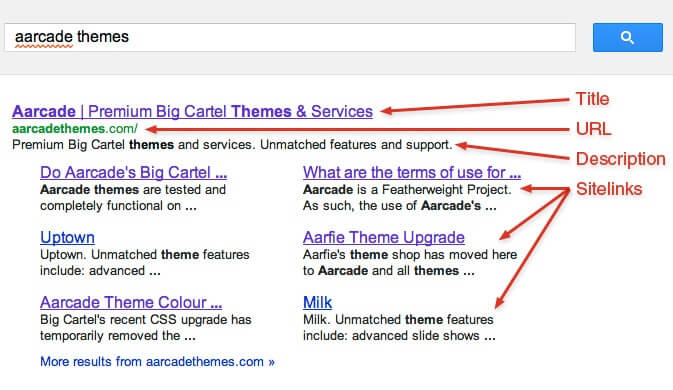If you put something on a public blog, anyone can read it. Blogs, like all public websites, are accessible anywhere in the world at any time, and anyone with unlimited access to the Internet can read it. (Many blog platforms do allow privacy settings or password protection; if you use these options, you have more assurance of privacy.)
And, as with all public websites, people can print, duplicate, and fax blog posts, tape them to lampposts, distribute them to a class, or post them on social networking websites such as Facebook. A reader of your blog can even copy and paste the text of your blog posts into a text editor or email message, sending that text buzzing around the world in the blink of an eye.
Even with available tracking software, you can’t know for certain who’s reading your blog, why they’re reading it, or what they might do with what you post. Often bloggers believe that only their friends and family are reading their sites, so they don’t worry much about what they’re writing.
Don’t make the mistake of assuming that you know who is and isn’t reading your blog! Even if you believe that your blog is seen only by friends and family, there’s no way to know that for sure.
Some blog-hosting sites require you to register to use them, and they limit readership to those who have registered. Such blogs might look as though they offer you more privacy, but don’t be lulled into a false sense of security.
Generally, the barriers to registering for a service are very low: You just need an email address.
Those blogs might as well be public.In rare instances, an entire blog is password-protected and therefore readable only by visitors who know the login information for the site.
As long as that login information stays private, the blog is private. All the points about people being able to copy and paste or print the post still apply, however. As well, if someone shares a password or reads your blog from a public computer, you may have unwelcome guests.
In this article, I drive home the point that you shouldn’t post anything to your blog that you don’t want anyone in the world to read — and yes, that includes your best friend, your significant other, your mother, your coworkers, your boss, your landlord, your neighbor . . . you get the idea.
After you’ve shared your thoughts in the digital space, you have no guarantees of privacy regardless of blog settings.
Any productivity guru will tell you that individuals who are looking for advice think with their short-term brains. When you start a new project, you rarely think beyond the end of the calendar year — and even that can be a somewhat generous assumption.
New bloggers aren’t any different. Thinking about where you want your blog to be in five years is a difficult under taking. In fact, most bloggers will tell you that online years are a bit like dog years.
The most old-school bloggers have only been around for a little more than a decade! The blogging world changes rapidly. With that said, do you hope to still actively blog five years from now, or will blogging likely be a short-term pursuit?
Recognizing your level of commitment helps establish a clear vision about the resources that you should put into the blog.
Making decisions about the future of a blog can be a tricky business, but here are a few questions to answer (maybe in your new blog!) about where your blog will take you:
What level of commitment are you willing to make to blogging?
Take a moment to visualize your level of commitment. On a list of your general priorities, where does blogging fall? If it’s at the absolute bottom of the list, becoming a blogger may not work out well. On the other hand thinking about how many ways you can use your blog to enhance your business visibility or to keep your family up to date about what you’re doing, you might want to try blogging.
The best starting point in determining your commitment is deciding how many posts you’re planning to write per day or week. Many popular bloggers tend to post about once per day, but at that stage, the blogs are usually providing a little income to the blogger.
Posting once per week is typical for many personal blogs.
Do you like writing? How’s your typing?
Being able to write is one skill, but being able to write interesting, fun prose that people actually want to read is entirely different. You can’t pick up blogging overnight; you must figure out how to do it by practicing. A good way to do this is to create a test blog on a free blogging service like Blogger (www.blogger.com) and try posting for a period of time. If you have any fear of writing or don’t know whether writing on a regular basis will work for you, you don’t need to invest a lot of time and money until you know the answers to these questions.
Knowing how to type is an important skill that some new bloggers might not be very good at. If you don’t like to write (or type!), consider a podcast or vlogging (video blog).
What will the blog be about? Is your blog personal or professional?
If you think of your blog as a personal space, you should spend less time on it than you do on your paying work or occupation — and you should definitely keep your budget lower than your income! Choose a design solution and write content to suit your budget and time.
However, if you want the blog to serve a business purpose or promote your professional acumen, keep in mind that a company or consultancy needs to present a polished, professional image online with a professional-looking design — ideally, one that’s integrated into any existing branding and identity.
Also, rather than squeeze in time for writing the blog, designate time for blogging just as you would for a meeting, project task, or other work-related responsibility.
Do you think that your new blog might grow into a new career, lead to new clients and business, or help build connections with peers and colleagues?
Websites can really help you make connections (just like joining social networks and finding old classmates), and I presume that, in part, you’re starting a blog to reach out to a community. If the community is a professional one or a group whose respect you must earn, your blog can send unspoken messages about who you are and what you stand for.
But you don’t need to get all corporate!
Most popular bloggers have developed careers based on their blogs unintentionally, all thanks to the quality of the blog. Bloggers have used blogs as starting points for book deals, television shows, and even direct sources of revenue.
Think about the needs of your audience members and how to appeal to them, even when you consider what software to use. If you want to build an empire, choose the software that has the bells and whistles necessary to make that empire possible.
How comfortable are you with sharing information about yourself or about your business or industry?
The Internet is a public space. Don’t forget that anyone, not just the people you’re trying to reach, can read what you reveal about yourself on your blog. Occasionally bloggers find themselves the recipients of unwanted attention and discover that they need to blog more anonymously than they’d plan.







